This is what it means to be the youngest child at our orphanage: your feet never touch the ground.
You are passed from one set of arms to another, one doting teen to another, one nanny to another, one visitor to another.
The oldest child at the Have Faith Haiti orphanage has a certain status, some special privileges, some baked-in authority. But the youngest gets all the attention. It has been this way since I arrived. I have seen it writ large in the last few weeks.
The youngest child we ever took in was named Bettinie — or Babu, as she is better known. Her grandmother brought her to us, desperate for help. She told us she was almost three, and while she looked kind of small for that age, we were sympathetic to her poor conditions and accepted her. Months later, when we finally get ahold of her birth certificate, we realized the grandmother had slightly exaggerated. Babu was not three.
She was one and a half.
So for the next few years of her existence, everyone doted on her. She was, after all, so young by comparison to the others. The teenaged boys would lift her high over their heads until she squealed, and the teenaged girls would hold her in their laps during evening devotion, during which she would inevitably fall asleep. It was a beautiful thing to watch, these budding young women who for the most part, had known no motherly affection of their own, instinctively showing it to little Babu. The only problem was there was only one of her to go around.
In time, Babu grew — she is now 12-years-old — and the title of “youngest kid at the mission” was passed on to others. This speaks to a question I often get “What age do you take children in?”
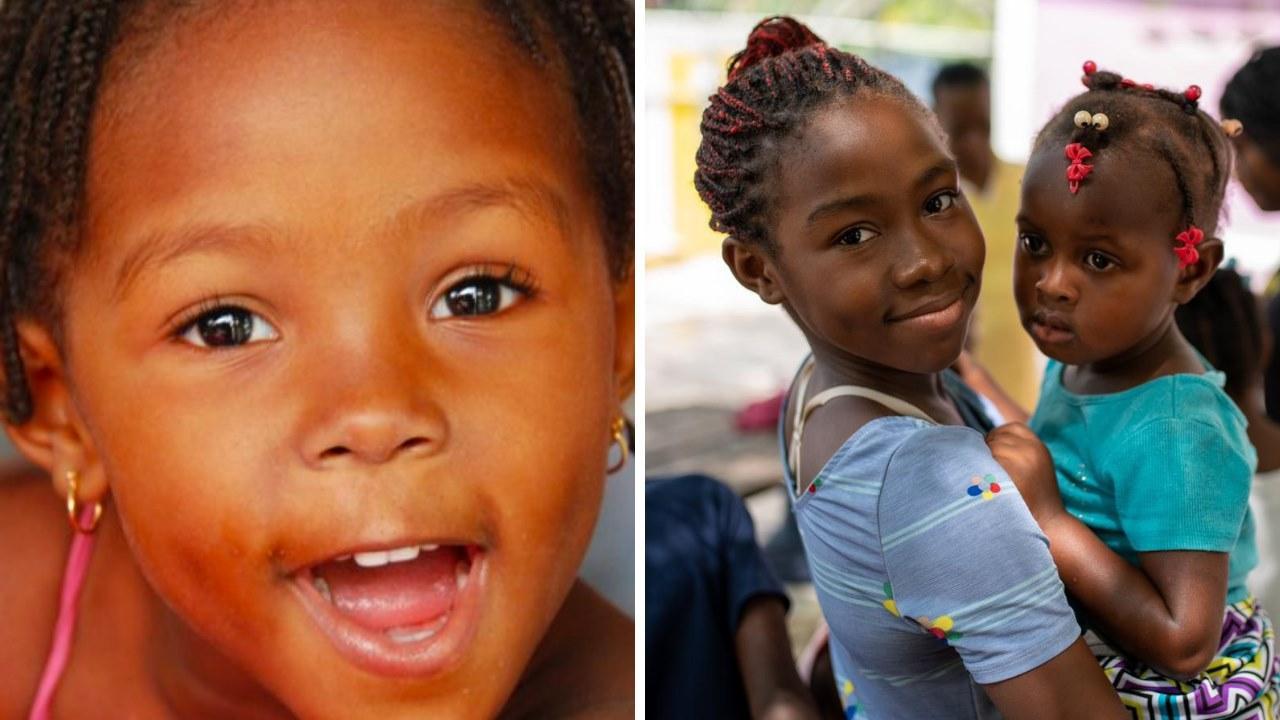
Babu in 2011 (left) / Babu holding Rosemyca in 2021 / Photo credit: Danielle Cutillo / Courtesy of Have Faith Haiti |
Well, like everything is this incredible journey, we had to learn our lessons the hard way. At first, we sought children in the 5 – 6-year-old range. Our (naïve) thinking was that they already had developed certain language skills, certain physical skills and emotional maturities. And — funny as it sounds — they were potty trained. Wetting the bed is a huge issue at any orphanage, especially if you have a limited supply of mattresses.
What we learned, however, was that with age comes other problems. The majority of 5 or 6-year-olds we were taking in, we glumly discovered, had been sexually abused. Especially the girls. It was rampant. We learned this through agitated behavior, unusual physical affection issues (too reticent to be touched, or too anxious) and some good work by doctors and psychological specialists. Nearly all of the kids had been sleeping in shared spaces with older siblings, uncles, grandparents, family friends. In many cases, this resulted in the abuse, as well as heightened awareness of sexual behavior (as I often tell visitors, people don’t stop having sex just because there are children living in the tent, or the one-room shack. The kids end up seeing a lot of things they don’t understand.)
As a result, we slid our scale down, to 4-year-olds, 3-year-olds, and now, what is more common, 2-year-olds. This inadvertently created a new competition: cutest — and smallest — new addition.
Remember that our kids never get to see Mommy pregnant. They never get the speech about “You’re going to have a new baby sister. You need to be nice and share.” At our place, it works more abruptly. One day, suddenly, we have a new 2-year-old. And the cooing and fussing begins.
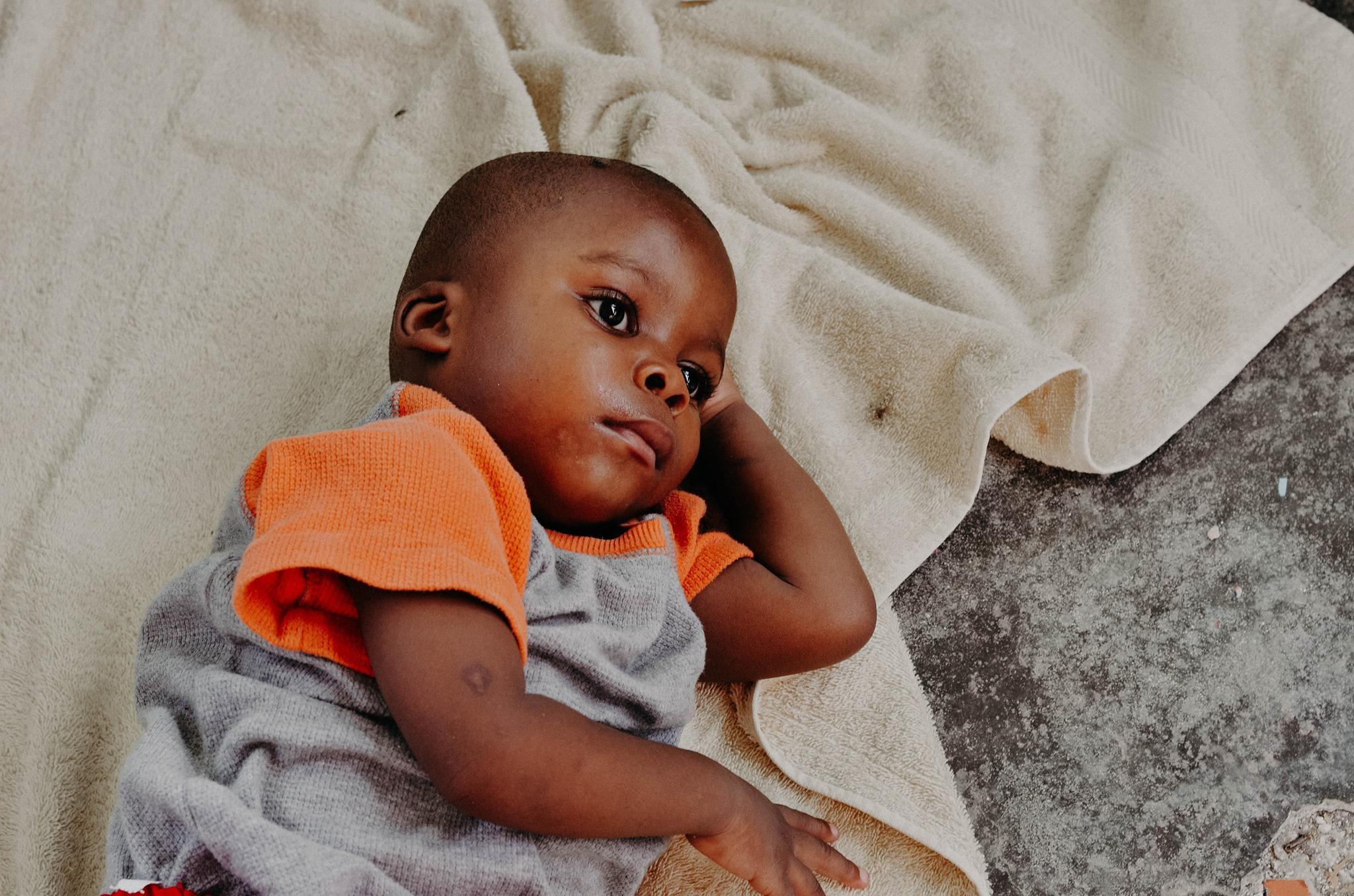
Jerry / Courtesy of Have Faith Haiti |
Recently, that title belonged to a round-faced beaming little boy named Jerry. He came to us through a staff member who knew of his plight (no father, a mother with medical issues) and for months after his arrival, Jerry, who is ridiculously cute, merely had to lift his arms and someone would swoop him up. “Oooh, Jerrrrr-y!” the kids would exclaim. They all but fought over holding him, and he didn’t seem to mind a bit. At one point, I had to tell our kids, “You need to put him down and let him learn how to walk!”
Jerry held the crown for a while, and life for him was one blissful lap after another. Then, recently, we accepted a couple of kids from a nearby orphanage that had been struggling. Jerry was about to turn four, and these new ones, Kim (a boy) and Malayka (a girl) were barely three. The older kids took turns passing the new little ones around, and I could see a look on Jerry’s face that, were it a cartoon bubble, might read: “Whoa! What just happened?”
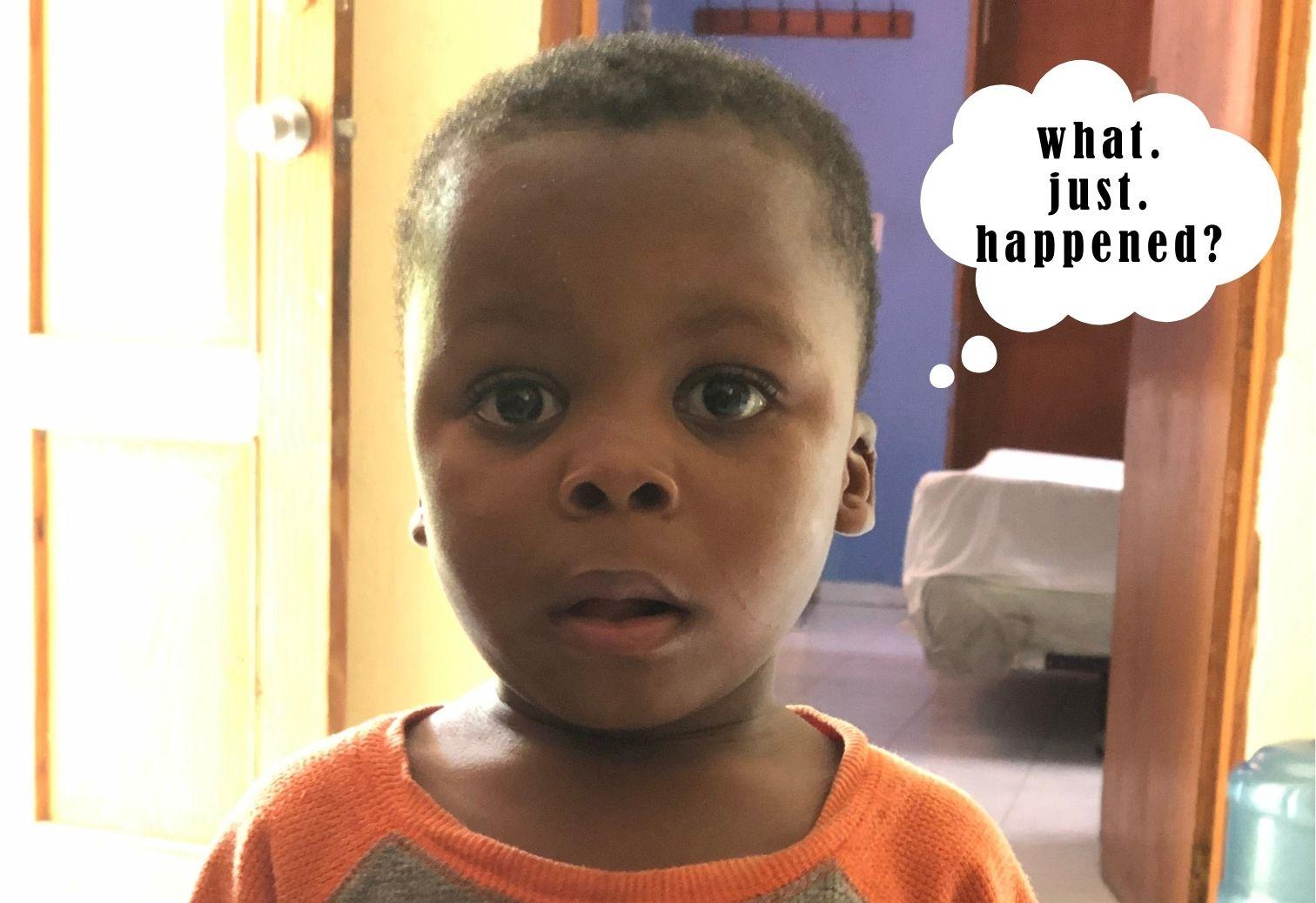
Jerry / Courtesy of Have Faith Haiti |
A few months later, we took in a half a dozen new children from the western regions of Mirogoane and Les Cayes, and they were even younger. One, a quiet, big-eyed boy named Belcome (who we now call Jeff; don’t ask) was only two, thin and easily lifted. And boy, was he lifted!
And then, last month, came Djoulisa, who was just slightly past 18-months-old, still in a diaper. She opened her arms and fell into a few dozen embraces, and that was that. A new Boss Baby had taken over. By this point, Jerry was walking around (walking! the very idea of it!) and looking for the complaints department.
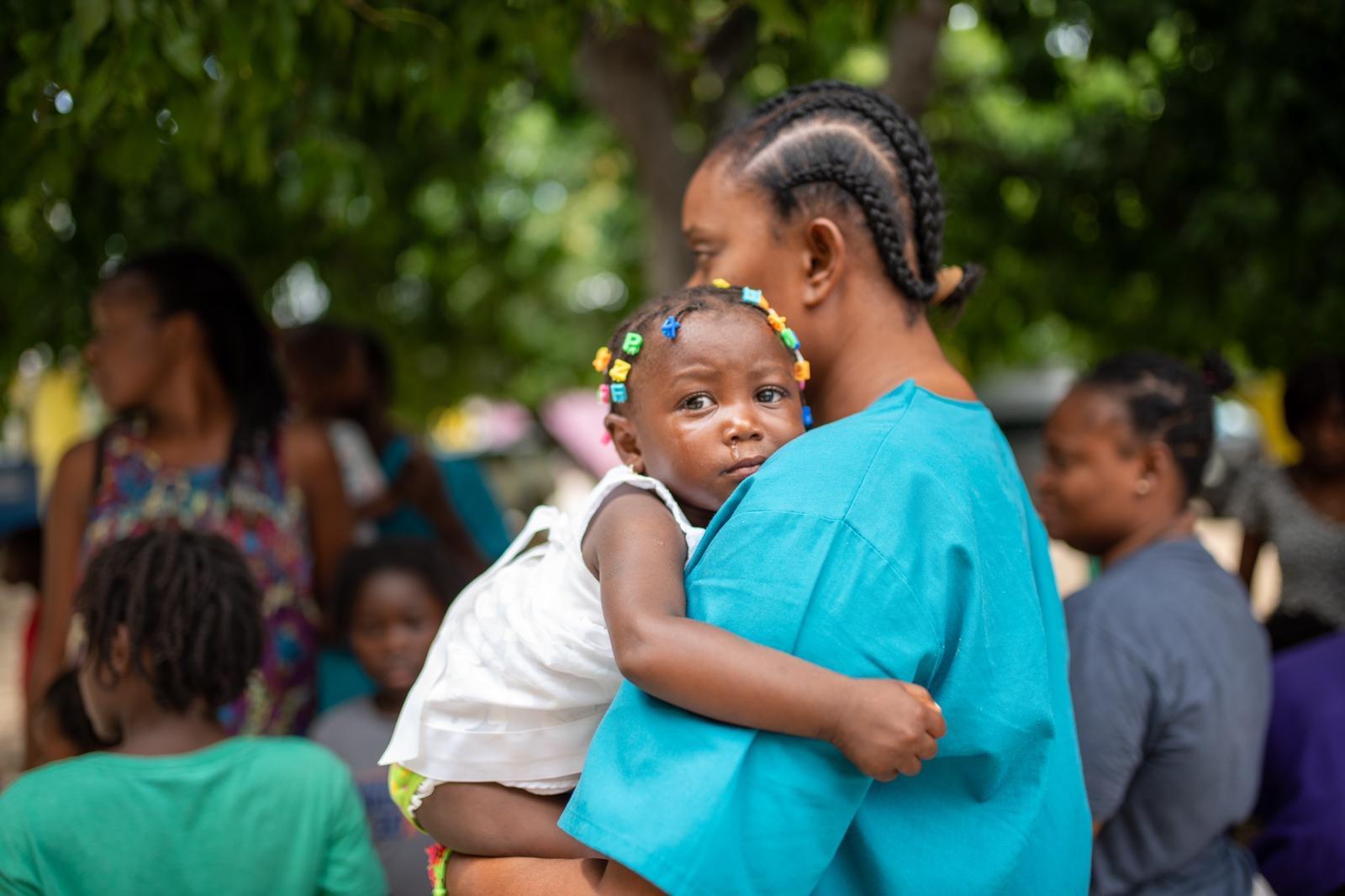
Djoulisa on her first day, crying on a nanny’s shoulder / Photo credit: Danielle Cutillo / Courtesy of Have Faith Haiti |
Meanwhile, I don’t know which astonishes me more. The pure and immediate love our older kids (and not just the teens, kids as young as seven or eight) show their new, tiny brothers and sisters, or the incredible adaptability of the infants themselves, who laugh and giggle and rest their heads on all these new shoulders as if they had been sleeping there forever.
All I know is that, while the expression is “It’s good to be the King”, around our place, it’s more like “It’s good to be the baby.” As Edgar Winter once sang, “Come on and take a free ride.” You’ll never have to touch the earth — at least until the next littler one arrives.
***
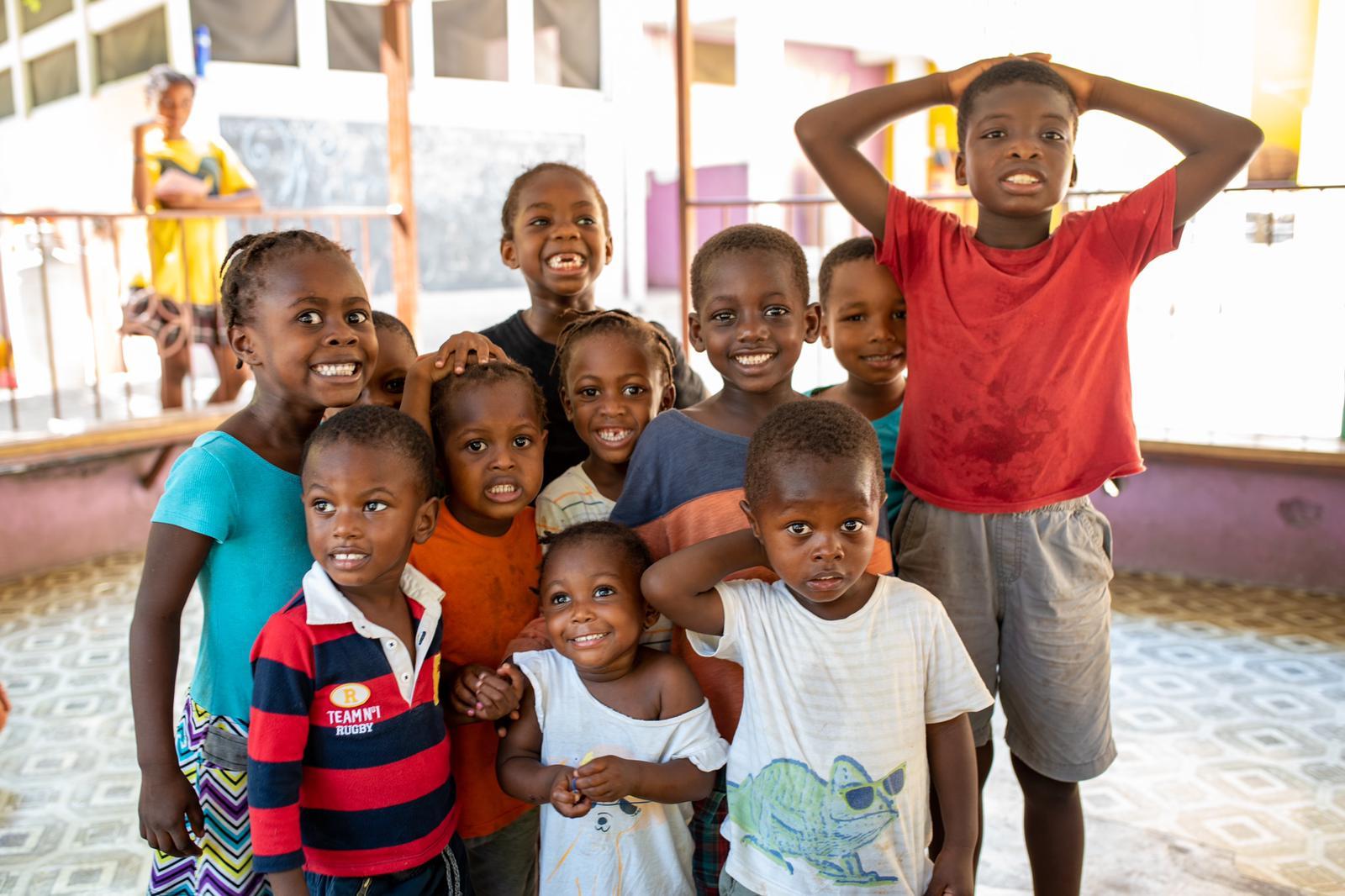
The baby bunch / Photo credit: Danielle Cutillo / Courtesy of Have Faith Haiti |
Feature image photo credit: Danielle Cutillo / Courtesy of Have Faith Haiti
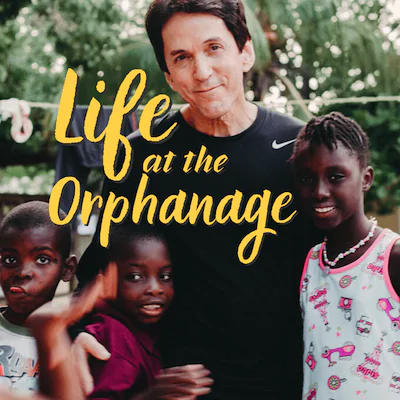
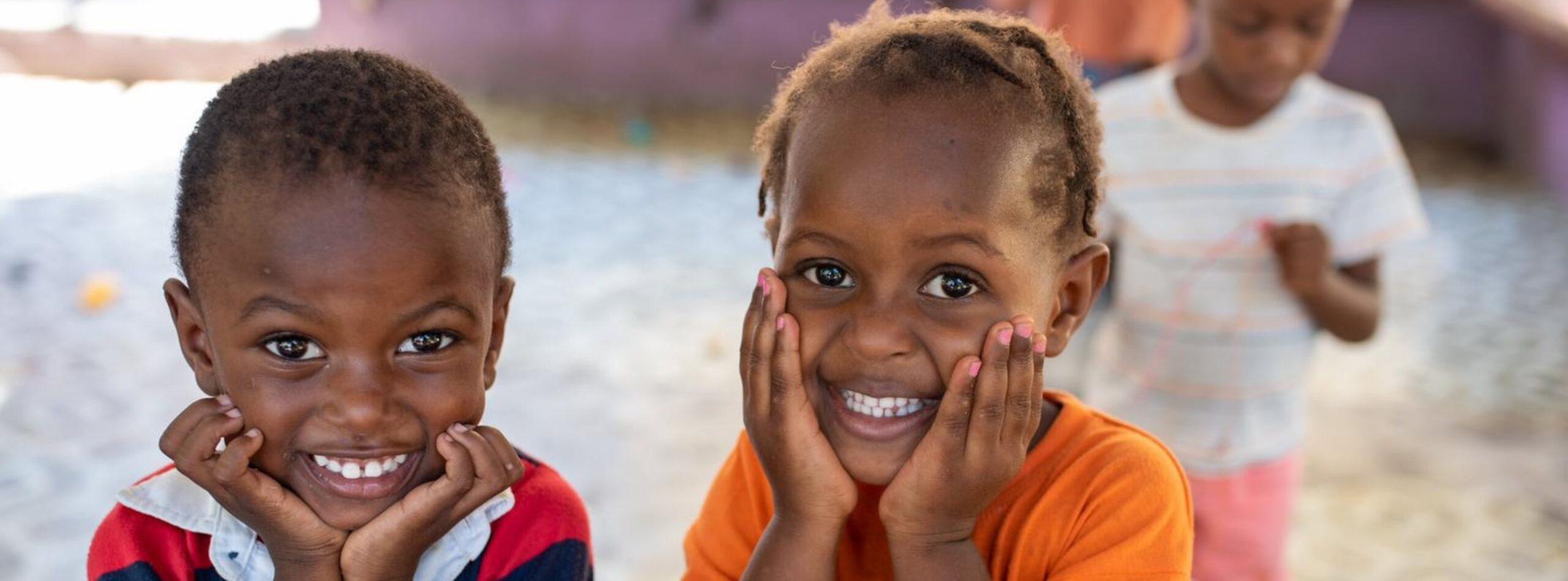

 Join a community of monthly donors
Join a community of monthly donors
0 Comments